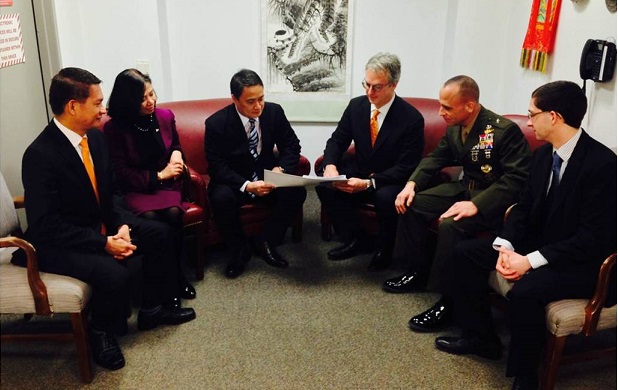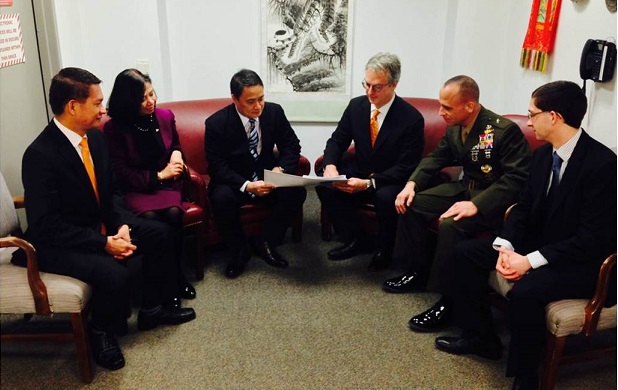By JOHNNA VILLAVIRAY GIOLAGON
PHILIPPINE authorities will have limited access to areas American forces are to occupy within the country’s military camps under an agreement the Aquino government is entering with the United States.
“It is safe to say that there will be language that will provide that the Philippine authorities would have access to the areas provided to the U.S. armed forces,” Defense Undersecretary Pio Lorenzo Batino, head of the Philippine panel negotiating with the U.S. on increased American military presence in the country, said Friday.
Eduardo Malaya, a career diplomat who is a new member of the reconstituted Philippine panel, said jurisdiction of Philippine authorities over erring United States military personnel will be governed by the existing Visiting Forces Agreement.
He elaborated that while Philippine access to U.S. facilities within military camps is “assured,” it will be regulated.
Access to locations with American forces will be through “the base commander or other duly designated authorities,” Malaya said, referring to the Secretary of National Defense or “whoever he designates to exercise that right.”
Briefing media on the on the sixth round of negotiations in Washington, D.C on March 4 to 6, Batino said the two countries are close to completing the agreement on “temporary access by U.S. troops to Philippine and Armed Forces of the Philippine facilities.”
Malaya, who is the Philippine ambassador to Malaysia, said the U.S. military facilities in military camps in the Philippines “will not enjoy any extraterritorial features…Philippine laws will prevail in that particular area.”
Batino also said the agreement on defense cooperation being negotiated will lead to “greater information sharing” but both countries have agreed to respect each other’s privacy.
The two countries are discussing “operational safety and security requirements” for the base commander to access areas to be occupied by American soldiers.
Malaya did not expound on the operational procedures but said one possible restriction could apply to the time of inspections. “Maybe (the inspection) should be during the day,” he said.
Batino reiterated the view that since the agreement they are negotiating is under the 1951 U.S.-Philippine Mutual Defense Treaty and the 1999 Visiting Forces Agreement, it need not be submitted to the Senate for ratification.
Malaya said the Philippine panel clarified with the Americans that the agreement, which would cover less than 20 years, would be “legally binding” whether or not it would have to be ratified by the Senate.
The next round of negotiations is scheduled last week of March.There is an expectation that the the agreement ready for signing in time for President Barack Obama’s April visit.
Military facilities where the Americans will be allowed to establish structures have yet to be identified by negotiators, although sites in Palawan’s Ulugan Bay and the former U.S. naval base in Subic have been mentioned in public discussions.
The ongoing negotiations are limited to military facilities and do not cover civilian facilities such as the Subic Bay Freeport.
The United States, under its Pivot Asia foreign policy, is reducing military presence in the Middle East and shifting to Asia.

